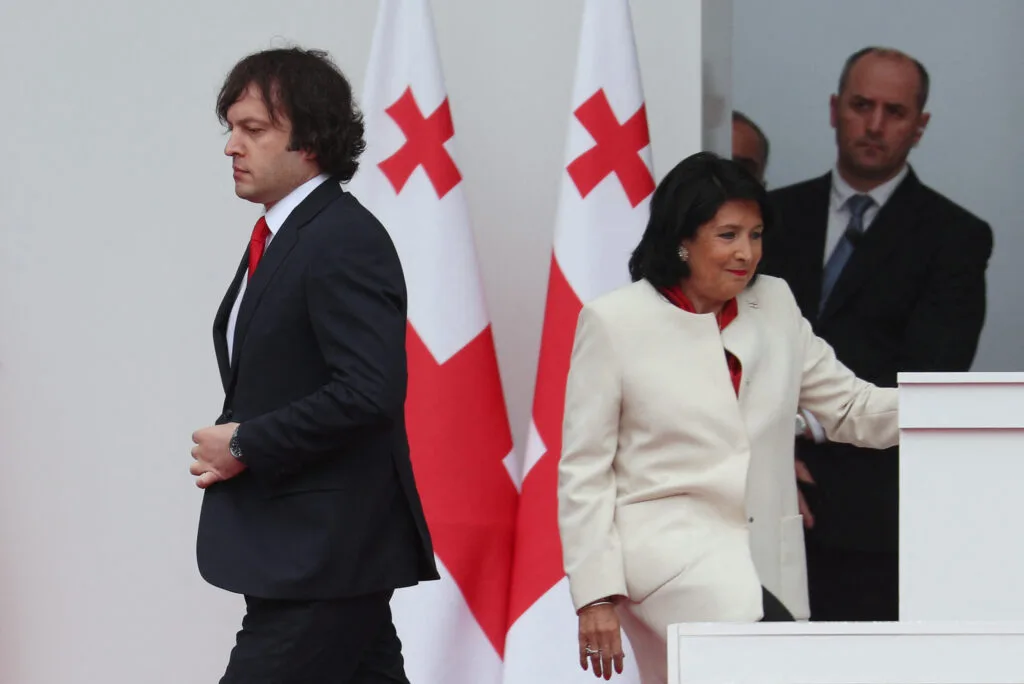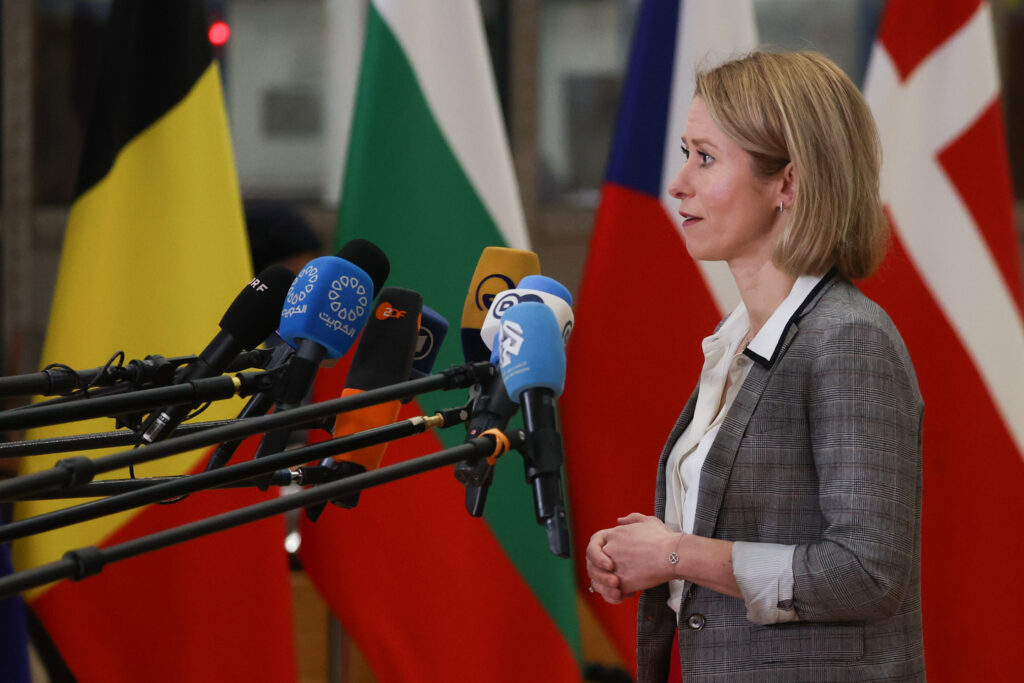Brussels–There were no twists and turns last Saturday (Dec. 14) for the election of the next president of Georgia. The post went to former soccer player Mikheil Kavelashvili, the only candidate supported by the ruling party, Georgian Dream. The opposition parties boycotted the process but did not have the numbers to make an impact. The incumbent head of state, the pro-European Salomé Zourabichvili, has refused to recognize the legitimacy of the election of her successor. While protests have been going on unabated for more than two weeks, the temperature of the political-institutional confrontation in the Caucasian country continues to rise.
Kavelashvili elected president
All as expected: former soccer player Mikheil Kavelashvili, candidate of the ultranationalist Power of the People party (a faction of Georgian Dream whose rhetoric is fiercely anti-Western and especially anti-US), was elected on Saturday by the Electoral College with 224 votes in favor out of the total 300 seats comprising the body, which consists of all 150 deputies from Tbilisi plus as many representatives of the territories and local governments. The College, introduced by the constitutional reform of 2017 (previously, the election of the head of state was by direct vote of the citizens), is dominated by the Georgian Dream, just like the hemicycle. The opposition forces are boycotting the work of both institutions, but they do not have the numbers to block the ongoing processes.
Moreover, the 53-year-old former national team player was the only candidate to succeed the incumbent president of the Republic, the pro-European Salomé Zourabichvili, which made his appointment a mere formality. The political point has remained the same for months: With its actions (Kavelashvili’s nomination is only the latest in chronological order), the party of Premier Irakli Kobakhidze is bringing the Caucasian country further away from the EU and ever closer to Vladimir Putin’s Russia.

Inclined plane
The Kremlin is being accused of meddling in Georgian politics, starting with the interference in the contested election last Oct. 26, which saw the ruling party retain power with 54 percent of the vote (according to official data), gaining its fourth victory in a row in the polls.
So the severe political crisis continues to deepen, which is causing Tbilisi to slide a dangerous inclined plane along the two parallel tracks of street protests – uninterrupted since the executive announced, on Nov. 28, the halt of EU accession negotiations until 2028 – and the head-on institutional clash between majority and opposition.
Zourabichvili, whose term will formally expire on Dec. 29, has repeatedly said that considering the new assembly (and, consequently, the Electoral College) illegitimate, she does not intend to leave her post at the end of the month. The outgoing head of state defined Kavelashvili‘s election — which took place exactly one year after Georgia was granted candidate-country status by Brussels — a “mockery of democracy.”
#GeorgiaProtests one year ago, Georgia received the Candidate status, today a Central Committee like « Parliament » « elects » a « one and only » candidate in a mockery of democracy.
That will never prevent Georgia to pursue its european path and democratic future!– Salome Zourabichvili (@Zourabichvili_S) December 14, 2024
Reactions to the vote
Prime Minister Kobakhidze congratulated Kavelashvili, stressing that “he will make a very significant contribution to strengthening the Georgian state and our sovereignty, as well as to reducing radicalization and so-called polarization in the country.” The prime minister criticized Zourabichvili, claiming that the current president has used her powers “as a means to divide society” and “artificially weaken our constitutional order” with the clandestine help of “outside forces,” referring to Tbilisi’s Western partners with whom the head of state continues to keep in touch.
From the opposition, Georgia Strong leader Mamuka Khazaradze declared that “any action of the illegitimate government, including the appointment of the so-called president, is illegal and is a provocation against its citizens.” For Sopo Japardize of the UNM party leadership, the country is witnessing “a circus,” and the proclamation of an “illegitimate president” by an “illegitimate government” represents “an insult to the Georgian people.”
European inaction
From Brussels, as usual, there is a struggle to take a quick and decisive stand. Hungary’s Viktor Orbán already said he would stand in the way should the 27 member states discuss imposing sanctions on the Georgian Dream leadership, proving again to be Putin’s best friend in the Union.
The violence against protesters – which does not spare journalists and leaders of the parliamentary opposition and which the National Civic Ombudsman compared to acts of torture – is increasingly pressuring European chancelleries to adopt a tougher line against the Tbilisi government and to give more support to the civilian population.

The EU’s High Representative for Foreign Policy, Kaja Kallas, said this morning (Dec. 16) on the sidelines of the ongoing Foreign Affairs Council in Brussels that the situation “is not going in the right direction” and that ministers of the member states will discuss “what we can do on the European side,” reiterating that the two options currently on the table are sanctions and limiting the visa liberalization regime.
The 12-star diplomacy chief stressed that “the list of people” to be sanctioned “has already been proposed and we are discussing it,” admitting, however, that “everyone has to agree and we are not there yet.” For now, the Baltic States unilaterally imposed restrictive measures on several people connected to the Georgian executive, including Prime Minister Kobakhidze. As for Zourabichvili’s fate, Kallas merely noted that “the president is in office until Dec. 29, and many things could still happen.”
English version by the Translation Service of Withub







